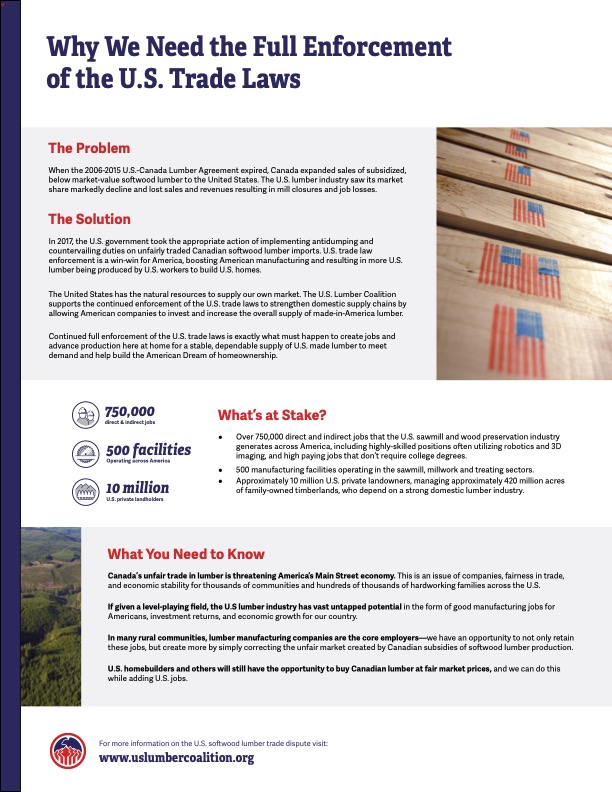Fact Sheet: Why We Need the Full Enforcement of the U.S. Trade Laws
Enforcement of the U.S. Trade Laws is a win-win for America – The softwood lumber trade cases to offset Canadian lumber subsidies and unfair trade have resulted in more U.S. lumber being produced by U.S. workers to build U.S. homes. Every Administration since the Reagan Administration has investigated the lumber trade issue with the same conclusion – import duties are warranted because Canadian lumber producers are subsidized and unfairly trade in the U.S. market to the detriment of U.S. companies and workers. In 2017, the U.S. government took the appropriate action of implementing antidumping and countervailing duties on unfairly traded Canadian softwood lumber imports.
The U.S. government must continue to fully enforce the trade laws—which conform to the World Trade Organization and general international obligations. U.S. trade laws duties simply offset the subsidies that Canadian producers receive from their government and the resulting unfair trade, allowing U.S. lumber manufacturers to grow to their natural size.

